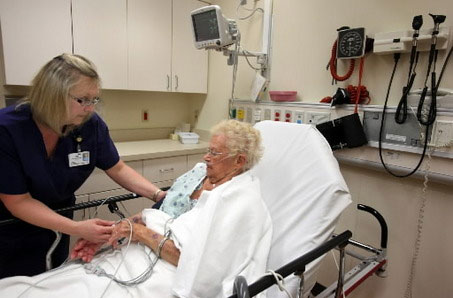Elder Law - Utah Advance Health Care Directive
Many people have created Living Wills. Utah revamped the law concerning advanced health care decision making. The Advance Health Care Directive Act (the "Act" ) can be found at Sections 75-2a-101 thru 124, Utah Code Annotated, which has replaced the Living Will.
Enacted in 2008, this act repeals the former law providing for Living Wills. Although an Advanced Health Care Directive is more complex than the former Living Will, it is much more comprehensive.
When you are in a medical crisis and cannot speak for yourself, or in the event you become incapacitated and cannot make daily care decisions, an Advanced Health Care Directive allows someone of your choosing to step in and be your voice.
The Advanced Health Care Directive combines a Living Will and a Medical Power of Attorney. It can nominate who you would like to serve as your guardian in the event of complete incapacity.
Even with an Advanced Health Care Directive, you maintain the ability to speak for yourself and make your own decisions as long as you have that ability. Health care providers still must listen to your voice to the extent you are able to make your own decisions and communicate them. The inability to communicate through speech does not mean that a person lacks health care decision making capacity. Further, however expressed or indicated, an person's current health care decisions always supersede any prior decisions and/or health care directives.
You may print out a form that will assist in preparation of an Advance Health Care Directive by clicking the link below. You may email the form or print and bring it with you to your meeting with your attorney to facilitate preparation of the actual advance health care directive. Making sure you understand your options and exactly what you are directing is of paramount importance on these very important decisions.
http://aging.utah.edu/_documents/utah-coa/directives/fillin-2009.pdf
Any time your advanced health care directive no longer reflects your wishes it is time to make a new one. These times usually occur whenever there is a death of a close personal friend, diagnosis of a serious illness, decline in health or capacity, or divorce. Good advance planning is a work in progress and continuing conversation.
There are many important considerations in preparing an advanced health care directive that accurately addresses your personal beliefs, values, goals and wishes. Although the document can be completed alone, it is highly recommended to seek the advice of an attorney in order to fully understand all of your options, the ramifications of your choices, and ensure that in the event of your incapacity, your wishes are properly addressed.

Lets Just Talk
Some of the Powers Granted by Your Directive May Include:
- To make life sustaining decisions
- To receive medical records and information
- To consent to treatment
- To refuse treatment
- To make daily care and living arrangements and decisions
- To make after death decisions such as organ, tissue or entire body donations. .
Utah law recognizes that people have the right to:
- Accept or reject health care, even if rejecting health care will result in death sooner than death would be expected to occur as a result of rejection
- Be spared from unwanted procedures; and
- Be permitted to die with a maximum of dignity and function and a minimum of pain.
